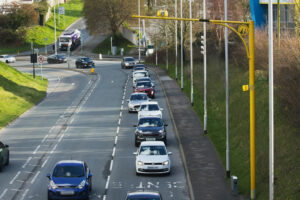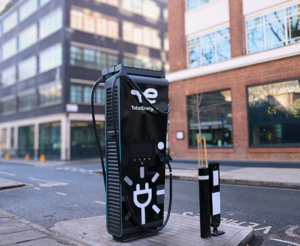Permanent re-shaping of the transport network based on active travel, public and shared transport should be the focus for local authorities in the long-term as well if the Government wants to drive a transport-led recovery, according to the Campaign for Better Transport.
The organisation’s new report, Covid-19 Recovery Renewing the transport system, calls for a requirement fo local transport authorities to produce plans to permanently reshape local transport networks based on active travel, shared and public transport. It also says any future government capital and revenue funding should be linked to these plans, as well as ensuring local authorities and bus operators work together to replan bus provision, with better integrated, multi-modal networks. Tendered and franchised services are likely to play more of a role due to the fragility of the sector and risk to communities connectivity, it says.
It also says that a new funding approach should be introduced to support bus services, not returning to the previous franchises on the railway and place a greater focus on leisure as well as commuter travel and new industry structures with devolution of control to city regions.
The report also says that Government should accelerate the shift to 100% zero emission road and rail travel through requiring all buses to be zero emission, supporting the growth of a hydrogen fuelled heavy fleet sector in the UK, incentivise the shift to electric vans for deliveries and fleet, and initiate a rolling programme of rail electrification. It says government should ‘lock in the shift’ to active travel with permanent infrastructure changes and ensuring that it does not restrict public transport and bus services.
Furthermore, it says E-scooters should be legalised for use on the road and cycle lanes with a procurement framework for hire schemes setup and powers for local authorities to issue permits for hire operators and the Government should prioritise infrastructure to support sustainable transport, such as rail reopenings, bus priority and digital systems. The Campaign for Better Transport suggests new sources of raising revenue to support the shift to sustainable transport should also be put in place.
“The government should now increase its ambition and accelerate the delivery to ensure that transport better serves communities across the country. This agenda should be integral to a green recovery programme.
There is an opportunity to transform the transport system to facilitate economic growth, meet legal obligations around carbon emissions and air quality, and tackle social exclusion. A future focused strategy from the government is essential for the transport system to survive and communities to retain connectivity,” says the report.
“There is a risk to the viability of public transport following limited use in the short-term, and potentially lower levels of use beyond the pandemic following clear messages against using it. The long-term economic and social costs of permanently diminishing the public transport system will be much greater than the short-term costs of renewing the sector,” it adds.
“The transport system should reward sustainable transport and embrace the ‘polluter pays’ principle, so that public transport, active travel and shared mobility use are enabled and encouraged, while dissuading the use of polluting or congestion inducing transport services and use,” the report says.
Darren Shirley, chief executive of Campaign for Better Transport, said: “The effect of Covid-19 on transport has been seismic and support from the Government has been invaluable in sustaining the sector through the crisis so far. But as the UK begins the process of recovery, the Government must now focus its ambition on accelerating the shift to sustainable transport and the delivery of infrastructure improvements that facilitate this to ensure that transport better serves communities across the country.
“By focusing its financial support and policy improvements on public transport, walking and cycling, the Government can transform our transport system to facilitate economic growth, meet legal obligations around carbon emissions and air quality, and tackle social exclusion.”
























